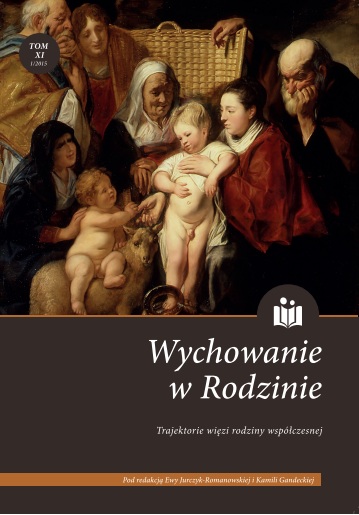Dzieci nauczycielami swoich rodziców. Socjalizacja
odwrotna we współczesnej rodzinie
Children as teachers to their parents. Reverse socialization in the contemporary family
Author(s): Anna KrólikowskaSubject(s): History, Social Sciences, Sociology, Family and social welfare
Published by: Zakład Historii Edukacji w Instytucie Pedagogiki Uniwersytetu Wrocławskiego
Keywords: youth; parents; intergenerational influence; socialization; reverse socialization
Summary/Abstract: The term “reverse socialization” is used to denote the situation in which theyounger generation introduces the older generation to new cultural conditions (e.g. lifestyle, fashion, art). It usually takes place during a prompt cultural change. The socialization of a child or a teenager by parents has been the subject of analyses carried out by numerous scientists, but the process of reverse socialization was of no significant interest to the scholars. Nevertheless, as early as in the 60’s some scientists noticed that socialization is not a one-way process but it has the nature of a mutual relationship. The first empirical research related to reverse socialization was not carried out until 2000 within the context of the Internet and electronic commerce. Socialization is first a one way process (from the parent to the child) and it takes places in the childhood. It becomes a mutual relationship later on. Thus, reverse socialization – the notion introduced by Ward – constitutes a phase of intergenerational influence which begins in adolescence but can last for the person’s whole life. The objective of the research related to our subject is to determine the areas of intergenerational influence, paying special attention to reverse socialization. The research shall be carried out from the point of view of young people, i.e. those who do such reverse socialization. The youth aged 16–18 shall be analysed. The fulfilment of the research objectives shall be divided into three stages: 1. Conceptual stage: the analysis of the notions of intergenerational influence and reverse socialization; 2. Operational stage during which the process of reverse socialization shall be examined and 3. The stage in which the research results shall be discussed.
Journal: Wychowanie w Rodzinie
- Issue Year: XI/2015
- Issue No: 1
- Page Range: 127-142
- Page Count: 16
- Language: English, Polish

